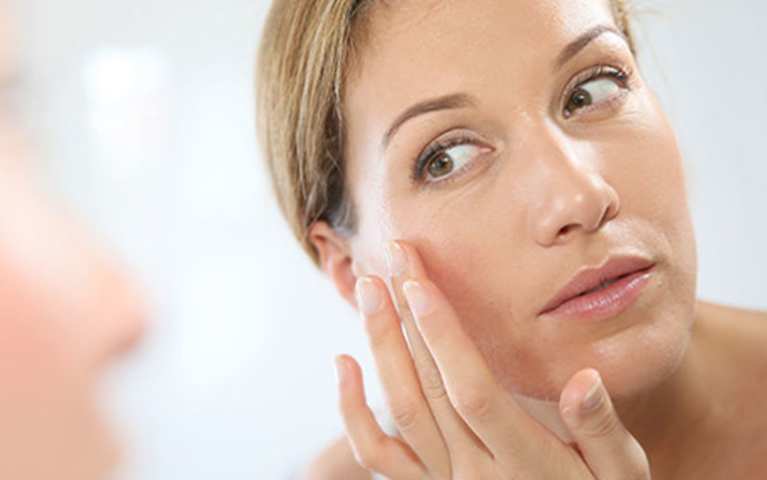Whether it's overtime at the office or a late-night bachelorette party, almost every woman has crawled into bed too exhausted to wash off her makeup. Does it matter?
“Sleeping with makeup once in a while probably isn't going to hurt anybody too badly," says Dr. Jessica Krant, dermatology professor at SUNY Downstate Medical Center in New York City, “but going to bed every night with a face full of makeup could potentially lead to issues short- and long-term, down the road."
According to a 2013 poll from the UK, 25 percent of women routinely sleep in their makeup. Of those women, a third said their skin looks worse from doing so.
So why is this such a cardinal beauty sin?
Breakouts
In the short term, says Krant, sleeping with makeup leads to acne. “Your skin has to contend with less oxygen exchange through the surface," Krant says, “as well as irritating chemicals being in contact with the skin longer than intended."
These irritating chemicals, paired with a lack of oxygen, clog pores with sebum and dead skin cells, leading to some pretty gnarly acne breakouts – everything from pimples to pustules to cysts. Ouch.
Aging
“Long-term," says Krant, “environmental pollution and other toxins get stuck in your makeup. That can theoretically lead to faster aging and more dullness, fine lines and wrinkles."
The irritants in makeup can break down collagen, a protein responsible for skin rejuvenation and firmness. The less collagen we have, the more bagginess, wrinkles and fine lines appear. Additionally, pores clogged by makeup over time can stretch out permanently.
Infection
When women leave their mascara on while they snooze, it can dry out eyelashes and "make them more prone to brittleness and breakage," Krant says. “Flecks of mascara can actually get into your eyes at night, which can lead to clogging of eyelash follicles and glands," she says. This, in turn, can cause styes or even blepharitis, a difficult-to-treat eye inflammation that can be accompanied by itchiness and redness.
Healthy Habits
In addition to washing off makeup thoroughly before bed, Krant recommends applying a light moisturizer to the face and neck.
“This helps protect the cells and keeps environmental toxins off the skin, while preventing it from drying out, which tends to happen overnight," Krant says.
Another way to keep skin healthy is to replace pillowcases weekly, at least, and to keep a humidifier next to the bed, which can reduce inflammation and dullness. Loose eye masks, also frequently washed, can be worn after your face has been cleansed.
Like diet and exercise, quality sleep is essential for optimal wellbeing and performance. Because everyone's sleep needs are different, Sleep Number® smart beds sense your movements and automatically adjust firmness, comfort and support to keep you both sleeping comfortably. Find your Sleep Number® setting for your best possible night's sleep, and if you own a Sleep Number® bed, log in to your Sleep Number® Rewards account to see your exclusive offers, refer friends and more.
